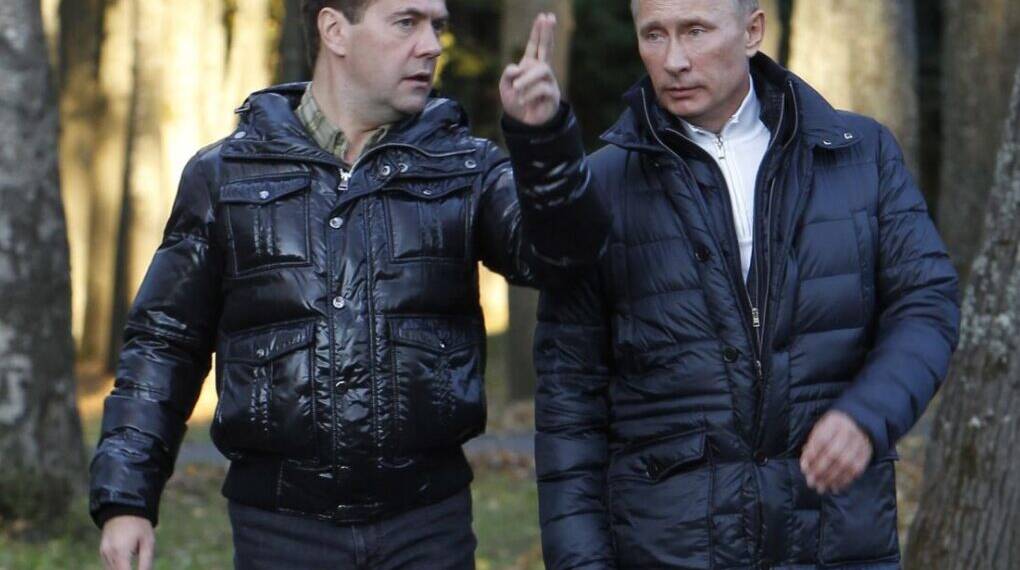In a shocking and potentially destabilizing development, Dmitry Medvedev — the Deputy Chairman of the Security Council of the Russian Federation and former President of Russia — has claimed that certain countries are “ready to transfer nuclear weapons to Iran.” The statement, made during an interview broadcast on Russian state media, has sent ripples through the international community, raising fears of a new and dangerous phase in global geopolitics.
Medvedev’s comments come at a time of heightened tensions in the Middle East, following the United States’ recent military strikes on Iran’s nuclear facilities and Tehran’s subsequent threat to close the Strait of Hormuz — a vital chokepoint for global oil shipments. The possibility of Iran obtaining nuclear weapons amid such volatility could escalate the situation into a full-blown regional or even global crisis.
An Axis of Nuclear Tension?
The statement has renewed concerns about an emerging alliance among authoritarian powers—what critics are calling a modern “Axis of Evil,” comprising China, Russia, Iran, and North Korea. The potential involvement of North Korea, a known nuclear-armed state, in transferring nuclear capabilities or technology to Iran would be a direct violation of international treaties, including the Nuclear Non-Proliferation Treaty (NPT), to which both Russia and Iran are signatories.
Security analysts believe that if Russia were to unofficially support the transfer, it would likely use intermediaries such as North Korea to maintain plausible deniability. This would allow the Kremlin to provoke the West without directly engaging in nuclear proliferation, while simultaneously strengthening anti-Western alliances.
Western Reaction and Escalation Risks
U.S. State Department officials have expressed “grave concern” over Medvedev’s statement, though the White House has not issued a formal response yet. NATO sources confirmed that emergency consultations are underway, and intelligence agencies are working to verify whether any nuclear material transfers have occurred or are being planned.
“The world cannot afford a nuclear-armed Iran,” said NATO Secretary-General Jens Stoltenberg in a press briefing. “Such a development would be catastrophic for regional stability and global security.”
Israel, which has consistently viewed a nuclear-capable Iran as an existential threat, is reportedly on high alert. Senior Israeli defense officials have indicated that they are preparing for “multiple contingencies,” including preemptive military options if intelligence confirms nuclear movement toward Tehran.
Strategic Fallout
If Iran does acquire nuclear weapons—especially through covert support from Russia and North Korea—it could trigger a chain reaction in the Middle East, prompting nations like Saudi Arabia, Turkey, and Egypt to pursue nuclear arms. This would mark the collapse of decades of nonproliferation efforts.
Such a move would also further alienate Russia from the international community, deepening its alignment with other authoritarian regimes and solidifying a bloc opposed to U.S.-led global order.
What’s Next?
With the Strait of Hormuz crisis already threatening global energy markets and the world teetering on the edge of broader conflict, Medvedev’s remarks may prove to be more than provocative rhetoric—they could signal a tectonic shift in nuclear diplomacy and global power structures.
The United Nations Security Council is expected to hold an emergency session to address the implications of Medvedev’s statement. Meanwhile, the U.S. and its allies are likely to push for increased sanctions and tighter military cooperation in the region.
If these fears materialize, the world may be entering a new and more dangerous era—one where nuclear weapons are no longer confined to the traditional superpowers, but are wielded as tools of leverage by rogue states and their allies.








